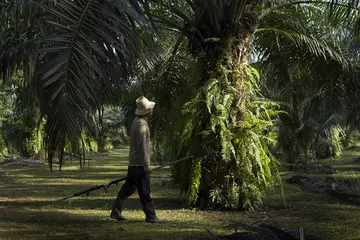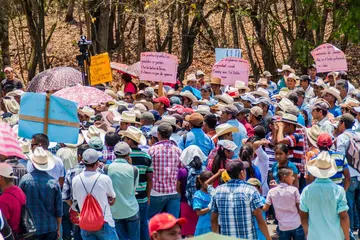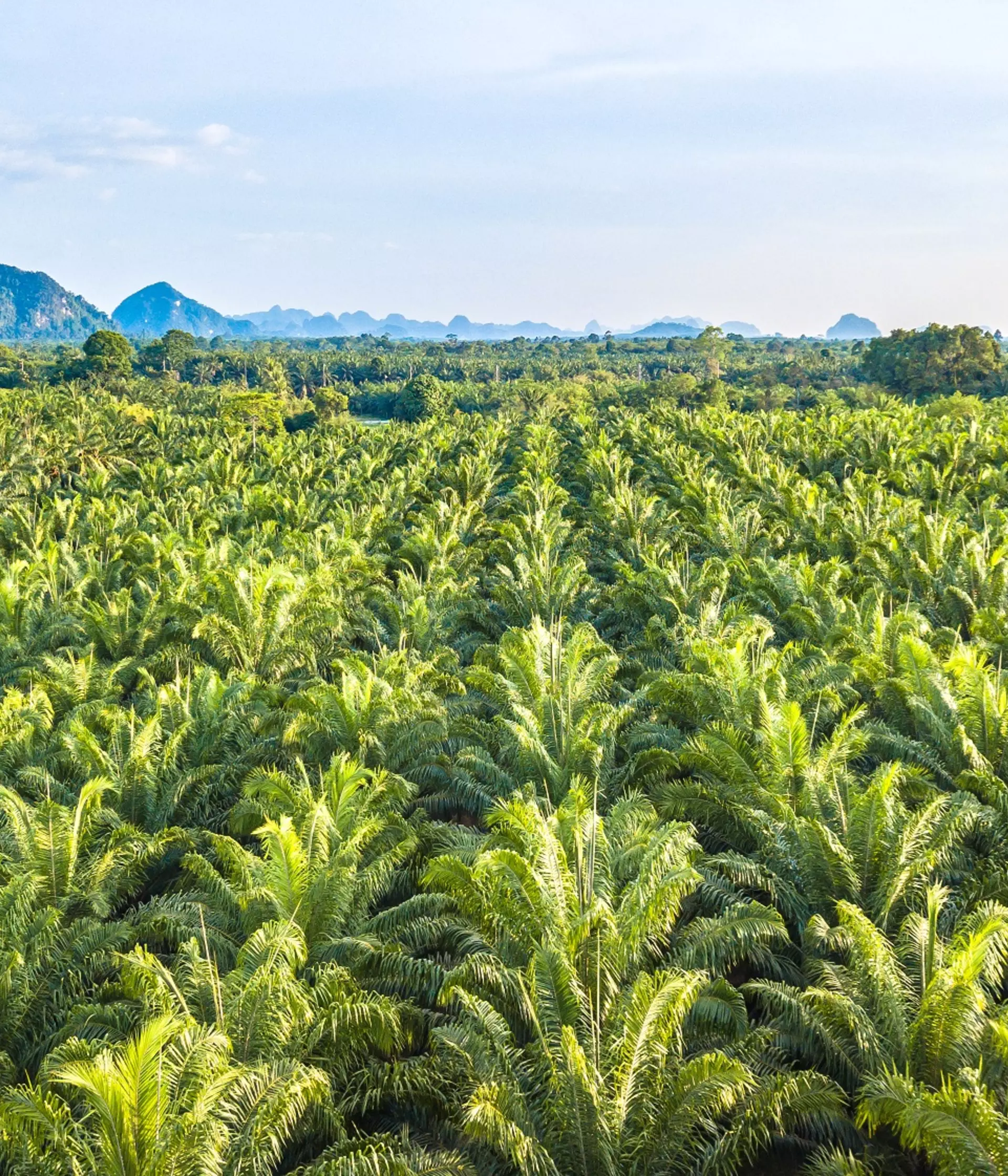
Learn more about the environmental and social impacts of this controversial crop – and our mission to create change in the palm oil industry.
Why is palm oil bad for the environment?
Palm oil isn’t intrinsically bad. For those living in the tropics, it’s a reliable crop that can be cultivated almost year-round, supporting livelihoods and economic development. The problem with palm oil is that it has also been a major driver of tropical deforestation.
The amount of land occupied by palm oil plantations has increased almost nine-fold over the past 50 years, from 3.3 million hectares in 1970 to 28.7 million hectares in 2020. All too often, those plantations have replaced rainforest or peatland habitats – accelerating biodiversity losses and releasing the carbon stored by trees and peat soils back into the atmosphere.
Land-use change, particularly deforestation, is now the second biggest cause of greenhouse gas emissions globally after the burning of fossil fuels.
Why is palm oil bad for wildlife?
Deforestation for palm oil is destroying some of the most unique habitats on Earth, such as the rainforests of Sumatra, home to the critically endangered Sumatran tiger. The expansion of palm oil plantations affects over half of the world’s threatened mammals and nearly two thirds of its threatened birds.
Palm oil plantations support fewer species than the forests they often replace. And as forested habitats shrink, animals can find themselves living in close proximity to people and crops, leading to human-wildlife conflict.
What about the social impacts of palm oil?
Globally, the palm oil industry employs as many as six million people directly, and around 11 million more indirectly. Around 30-40% of the world’s palm oil supplies are grown by smallholders. For growers like these, palm oil provides much-needed incomes and employment.

But if the palm oil sector isn’t responsibly managed and regulated, it can have serious consequences for people as well as wildlife. The negative social impacts of palm oil can include exploitation of workers and even violence against communities by unscrupulous palm oil companies. Large-scale palm oil plantations can also disadvantage local people through conflicts over traditional land, loss of forest resources, pollution and increased risks of flooding.

What is sustainable palm oil?
The good news is that palm oil doesn’t have to endanger communities, wildlife or habitats. If the industry is responsibly managed to protect people, wildlife and the planet – with zero deforestation – then palm oil can become genuinely sustainable.
As one of many partners in the international Roundtable on Sustainable Palm Oil (RSPO), we’ve played a part in making sustainable palm oil a reality by developing a globally recognised certification scheme that now covers around a fifth of the world’s palm oil supplies. But while huge progress has been made, there is still a long way to go to ensure that all of the world’s palm oil is sustainably produced – and we’re on a mission to inspire industry change.
Our progress on palm oil sustainability
ZSL has long been working behind the scenes and on the ground in palm oil-producing countries to address the industry’s negative impacts. In 2001, we began engaging with palm oil producers in Indonesia to improve wildlife management and reconnect tiger habitats within their concessions. More recently, we’ve been working with key stakeholders in Cameroon, one of Africa’s emerging palm oil producers, to build greater sustainability into the growing industry.
Building on our in-country work, we’re now working to inspire private sector change on a global scale. Each year, our SPOTT (Sustainability Policy Transparency Toolkit) team scores palm oil producers, processors and traders on their public environmental and social governance (ESG) commitments. This enables other stakeholders in the global palm oil supply chain, from financiers to food manufacturers, to forge commercial partnerships with suppliers who comply with their own ESG commitments.
Pioneered with producers in Indonesia, SPOTT actively encourages companies to raise standards. We’ve now expanded the platform to cover other industries associated with deforestation – the natural rubber and timber sectors. With your support, we can continue to inspire change in these industries and work towards a brighter future for both people and wildlife.
SUPPORT OUR CONSERVATION WORK HOW CAN I HELP TACKLE DEFORESTATION?
